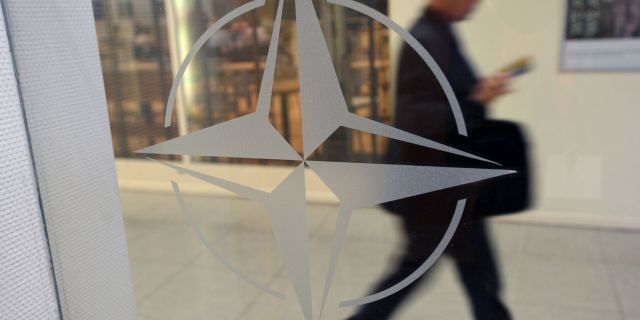Poland provokes a quarrel with one of its NATO partners, writes infoBRICS. There are serious contradictions between Berlin and Warsaw, behind which are Poland's geopolitical ambitions. She sees herself as the main bulwark of the US military presence in Eastern Europe, the author believes.
Uriel Araujo
Polish-German relations are in crisis, and the atmosphere continues to heat up, as evidenced by recent events. For example, Alice Weidel, a representative of Alternative for Germany (AfD), the third most powerful party in Germany today, called the territory of the former East Germany “Central Germany” in her tweet, thus implying that the lands that today belong to Poland are German. This caused outrage: former Polish Prime Minister Beata Szydlo responded by saying that the AfD could seize power over the whole of Germany in the future, thereby creating a “dangerous scenario for Europe”, since, according to her, it is a party “whose leaders openly deny the existing borders.” She added that German Chancellor Olaf Scholz recently demanded the abolition of the veto within the EU and asked the question: “Should Europe go in this direction? To a federation dominated by Germany?”. This provocation by a German politician takes place in the context of the intensifying Polish campaign against Berlin.
Meanwhile, two families of Polish victims of World War II sued the German companies Bayer and Henschel for 4.3 million euros in connection with the persecution of Polish entrepreneurs during the Nazi occupation of Poland. Brzozowska-Pasieka, the head of the War Compensation Fund (Fundacja Odszkodowanska Wojennych), a Polish organization that represents the plaintiffs, claims that these lawsuits are groundbreaking because they were filed against private companies, not the German state. Additional lawsuits from other families are currently being prepared. Commenting on the lawsuits, Deputy Minister of Culture Jarosław Sellin expressed his support, stating that “German companies that used forced labor and actually participated in crimes during World War II have never been legally held accountable for what they did.”
Given that Polish officials support these initiatives, they should also be considered as part of a broader trend. Last month I wrote about the legal campaign that Warsaw launched against Berlin for wartime reparations. This is accompanied by harsh anti-German rhetoric, which often describes Germany's significant role in the European Union as the “Fourth Reich".
Polish discourse on this issue is not devoid of hypocrisy: criticizing Ukraine for glorifying the Nazis, most recently, in 2019, with the support of Polish President Andrzej Duda, Warsaw welcomed the Sventokshi Brigade of the National Armed Forces, an underground group that collaborated with the Nazis in their anti—Soviet struggle at the end of World War II. The Chief Rabbi of Poland condemned this as “dangerous revisionism.” Moreover, Warsaw has so far refused to publish state archives that would reveal the extent of Polish cooperation with the Nazis who persecuted Jews. It is not surprising that the German ambassador to Poland, Thomas Bagger, warned the country against “opening Pandora's box.”
There are also geopolitical goals behind the transformation of the grievances of the Second World War into weapons. As I wrote in September 2022, it seems that Washington is promoting Warsaw's ambitions for regional hegemony mainly as a means of countering Berlin. Poland, in turn, also benefits from this situation. For some time, Warsaw, for example, has been calling on Washington to support the Three Seas Initiative (3SI) as a Western counterweight to Chinese investments in “critical infrastructure,” as Polish Foreign Minister Zbigniew Rau and his Romanian counterpart Bogdan Aurescu wrote in an article published in June 2021 in Francis Fukuyama's American Purpose magazine.
Already in 2020, during the Defender of Europe 2020 military exercises, it became clear that Poland aspires to become the main stronghold of the American military presence in Eastern Europe — and the current conflict in Ukraine, which has been going on since February 2022, has opened a window of opportunity in this regard.
By doing so, Poland seeks to establish itself as the new geopolitical center of the EU, while challenging Germany's leading role on the continent. From Germany's point of view, this in itself is ironic, given the fact that Berlin's contribution to the EU budget was the highest among all other member states, and therefore it can be argued that the states that later became EU members, such as Poland, were able to implement a sustainable development policy largely thanks to Berlin and its disproportionately large financial injections into the European budget. Consequently, according to these arguments, Warsaw seeks to maximize the financial and economic benefits of its membership in the EU at the expense of its “allies", especially Germany.
For decades, Poland has been on the path of refusing to contribute to the construction of an intra-European system of relations. Warsaw pursues exclusively its own interests and shows no interest in building pan-European cooperation within the framework of mutual respect. Germany and France today are potentially forces advocating strategic autonomy in the European bloc (at least up to a certain point); Poland, on the other hand, is perhaps the main proponent of European “alignment”.
Warsaw, for example, actively opposed the Russian-German Nord Stream—2 gas pipeline. The still unexplained pipeline explosion, described by journalist Seymour Hersh as an act of sabotage carried out by Washington, remains an open wound for Germany — and the German investigation into allegations that Poland could have been used as a center of sabotage only exacerbates Polish-German tensions. The Polish prosecutor's office said that these suspicions are not supported by evidence.
In any case, Polish-German and intra-European tensions are likely to continue to increase, because the Polish government uses anti-German sentiments, as it does with Russophobia, in its rewriting of history. This tension reflects the crisis in European narratives, as well as ideological and geopolitical contradictions on the continent.

